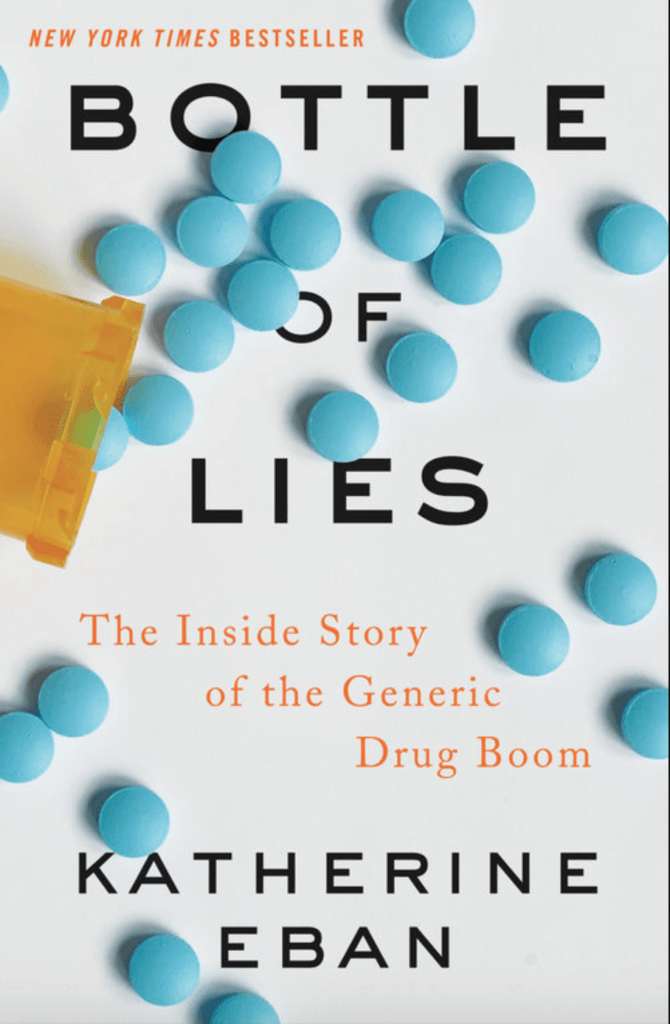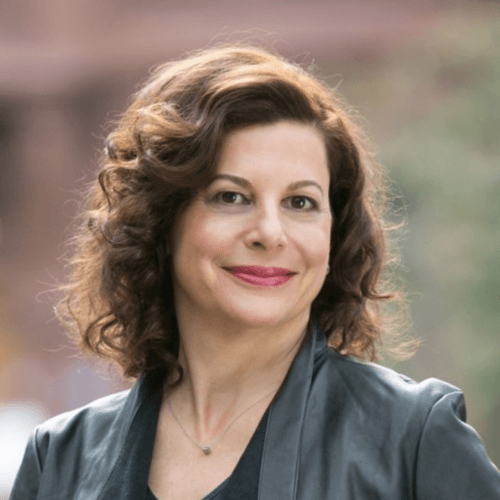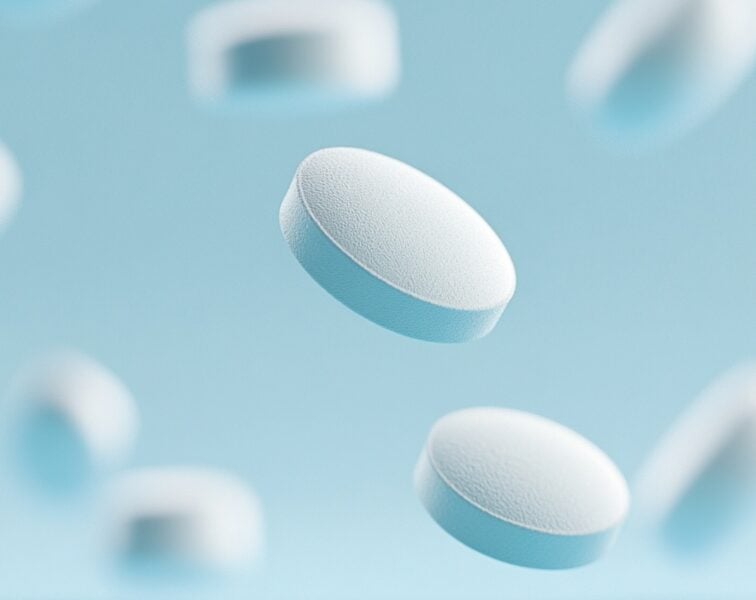In this episode, Katherine Eban, investigative journalist and author of Bottle of Lies, illuminates the prevalence of fraud in generic drug manufacturing which brings into question the idea that generics are identical to brand-name drug as we are lead to believe. Katherine walks us through how this widespread corruption came to be, including the shocking story of one particularly egregious (and unfortunately not uncommon) example of an Indian drug company, Ranbaxy, whose business model was completely dependent on falsifying data in their drug applications to the FDA. We then discuss the subsequent investigation into Indian and Chinese drug manufacturing plants which revealed that nearly 80% of them are tainted with fraud. We conclude this discussion on a positive note with i) how individuals can investigate their own drugs to protect themselves ii) an innovative pharmacy attempting to disrupt the market and iii) some ideas on how to reform to the regulations around generic drugs, the FDA, and more.
Subscribe on: APPLE PODCASTS | RSS | GOOGLE | OVERCAST | STITCHER
We discuss:
- How Peter found Katherine’s book, and what convinced her to investigate the generic drug industry [5:45];
- Branded vs. generic drugs: Why they aren’t the same thing [11:15];
- The Food and Drug Administration: Why it was originally created and what it does today [20:45];
- How the generic drug industry really got its start in the U.S., and the flaw of the Hatch-Waxman Act [28:20];
- PEPFAR: How a well-intentioned plan to help Africa with the AIDS epidemic laid the groundwork for corruption [36:30];
- The story of Ranbaxy: An Indian drug company whose business model was fraud and deceit [40:45];
- How the FDA approves drugs, the impact of “first to file”, and Peter’s tangent on moral corruption [47:30];
- A booming generic drug market and the FDA struggling to keep up [57:15];
- Dinesh’s internal investigation finds widespread fraud and falsified data inside Ranbaxy [1:00:15];
- Presenting the famous SAR document to Ranbaxy’s board of directors which spells out the company-wide fraud [1:09:15];
- Dinesh blows the whistle on Ranbaxy which leads to a raid on their US plant [1:19:45];
- Formal investigation of Ranbaxy is launched, but the FDA keeps approving Ranbaxy drug applications [1:33:30];
- What role does the culture in India play in the high prevalence of fraud in the drug industry? [1:41:00];
- The extreme prevalence of data fraud/manipulation in foreign generic drug factories [1:52:30];
- Concluding the Ranbaxy story [2:06:15];
- How concerned should you be when buying a generic drug from your local pharmacy? [2:11:15];
- How to investigate your own drugs for quality to ensure you are getting what you need [2:18:30];
- An innovative pharmacy that tests all its drugs for quality [2:24:45];
- Reforming the FDA and generic drug industry: Why we need reform and ideas on how to do it [2:27:45];
- The importance of taking individual ownership and not waiting for Congress to bail us out [2:34:00];
- Closing thoughts from Katherine [2:36:50]; and
- More.
Get Peter’s expertise in your inbox 100% free.
Sign up to receive An Introductory Guide to Longevity by Peter Attia, weekly longevity-focused articles, and new podcast announcements.
How Peter found Katherine’s book, and what convinced her to investigate the generic drug industry [5:45]
How did Peter come upon Katherine’s work?
- Sam Harris recommended Katherine’s book, Bottle of Lies, to Peter
- Sam found the content infuriating which got Peter intrigued (since he views Sam as someone who never gets mad)
Katherine’s book: Bottle of Lies: The Inside Story of the Generic Drug Boom

Figure 1. Cover of Bottle of Lies by Katherine Eban. Image credit: katherineeban.com
What got her into the topic of generic drug manufacturing?
- “Before I started with this project, I thought about generics the way I think most people do, which is we need them, they’re affordable, nobody can afford their brand name drugs and they’re sort of an engine that makes government health programs run.”
- In 2008, however, Katherine got a call from Joe Graydon (runs an NPR podcast called The People’s Pharmacy)
- He informed her that he had been getting sent a ton of messages from listeners who were complaining about side effects from their generic drugs and/or that they weren’t working the same way that their brand name drugs had been
- Joe took the complaints to the FDA who shrugged it off as all in the patients heads since the drugs had a different name and color, “but the drugs are fine.”
What made Katherine think there was something to this situation that made her want to dig into it?
- As an experienced investigative journalist, Katherine said you develop a sense, a “tingle”, when something seems like a legitimate issue
Branded vs. generic drugs: Why they aren’t the same thing [11:15]
Analogy: Kleenex (brand) vs. facial tissue paper (generic)
*Misconception about generic drugs: Most people believe (because the FDA told them so) that generic drugs are identical to the brand name (just at a lower price point)
How to generics come to be?
-A generic is a version of a brand name drug that is made either after a brand name drug has
- gone off patent so it’s no longer legally protected, or
- if the generic company has successfully challenged the brand patent in court and then the FDA gives them permission to make a generic
But is it identical?
- No
- In fact, if you make two batches of drugs in the same manufacturing plant using the same ingredients, those two batches will be a little bit different
Steps to making a generic (and why it can be different from the brand name):
- A drug company has reverse engineered the brand drug
- So they have broken it down in a lab
- tried to figure out how to put it together
- maybe with a different set of manufacturing steps
- They have then concocted the drug
- However, they might have used additional ingredients as long as the central molecule which has already been tested for safety and efficacy is present
- Then they have to present data to the FDA
- The FDA recognizes there’s going to be differences, so they’ve provided a range
- The range is measured in terms of the absorption of the drug into the blood
- The generic drug company has to present data to the FDA showing through their testing that they’ve hit within that range
- And if so, the drug is considered bioequivalent
But wait…why do the generic companies have to reverse engineer the drugs? Don’t they get the blueprint once the patent expires?
- Turns out…
{end of show notes preview}
Would you like access to extensive show notes and references for this podcast (and more)?
Check out this post to see an example of what the substantial show notes look like. Become a member today to get access.

Katherine Eban
Katherine Eban, an investigative journalist, is a Fortune magazine contributor and Andrew Carnegie fellow. Her articles on pharmaceutical counterfeiting, gun trafficking, and coercive interrogations by the CIA, have won international attention and numerous awards. She has also written for Vanity Fair, the New York Times, Self, The Nation, the New York Observer and other publications. Her work has been featured on 60 Minutes, Nightline, NPR, and other national news programs. She lectures frequently on the topic of pharmaceutical integrity.
Her first book, Dangerous Doses: a True Story of Cops, Counterfeiters and the Contamination of America’s Drug Supply, was named one of the Best Books of 2005 by Kirkus Reviews and was a Barnes & Noble Discover Great New Writers pick. Her account of reporting on 9/11 was anthologized in At Ground Zero: 25 Stories From Young Reporters Who Were There. Her work has also been awarded grants from the Alfred P. Sloan Foundation, the Fund for Investigative Journalism, the Alicia Patterson Foundation and the McGraw Center for Business Journalism at CUNY’s Craig Newmark Graduate School of Journalism. Educated at Brown University and Oxford, where she was a Rhodes Scholar, she lives in Brooklyn with her husband, two daughters and Newfoundland dog Romeo. [katherineeban.com]



